Reviews
Eric Idle & Gary Weis
USA, 1978
Credits
Review by Sam Bett
Posted on 10 December 2012
Source Rhino Home Video DVD
Categories Rock Follies II
Less than ten years after the breakup of The Beatles and six years before the definitive rock-mockumentary This is Spinal Tap, Monty Python’s Eric Idle and Saturday Night Live producer Gary Weiss offered American audiences a rollicking send-up of Beatles mythology with The Rutles: All You Need is Cash. Masquerading as a low-budget television documentary on the greatest rock band that never was, the film follows the rise and fall of The Rutles - “Nasty, Dirk, Stig and Barry,” or “The Prefab Four” - from their underground origins in Liverpool to their unhappy dissolution in 1970. (Sound familiar?) The Rutles story maps the contours of actual Beatles history with such exhaustive fidelity it blurs the boundary between parody and tribute. To perpetually remind us of the farce, directors Idle and Weis employ a host of what would eventually become key elements of the mockumentary: the intersplicing of genuine archival footage with carefully restaged apocrypha, interviews with contemporary celebrities, and a narrative timeline which forces bogus events into the story we thought we knew. The result is a comically remastered version of Beatles history that simultaneously spoofs and champions the legendary band it so playfully eviscerates.
Despite being an obvious mockery, All You Need is Cash asserts its veracity through a sustained presentation of real-life witnesses and persuasive evidence. The film opens with a famous archival clip of anonymous teenage girls screaming themselves sore at a Beatles concert, subtitled with the line “Liverpool, England 1964.” These total strangers, who we can only hope were lucky enough to spot themselves on TV when All You Need is Cash first aired, implicate us as spectators and thereby suck us into the world of The Rutles before we’re even given a chance to question it. With the appearance of the imposter foursome only moments later, various forces immediately threaten to eject us from the fantasy, but in between the moments of self-conscious conspicuity All You Need is Cash doggedly elicits our belief. Neil Innes, Eric Idle, Ricky Fataar, and John Falsey might bear only moderate resemblance to John, Paul, George, and Ringo - a fact satirized by Fataar’s dark complexion and Indonesian ancestry - but their respective portrayals of Nasty, Dirk, Stig, and Barry mimic the vocal styles, mannerisms, and evolving haircuts of the Beatles with an eerie accuracy that radically intensifies their overall resemblance.
The action of All You Need is Cash is at turns guided and distracted by a clumsy Narrator (played by a double-cast Eric Idle) who travels with his camera crew to venues where The Rutles “actually” performed and hotels where they “actually” stayed. As a periodic highlight to the farce, the Narrator’s tedious obsession with noting the “actual” is comically overpowered by the dispelling power of Idle’s double-casting; as both a member of the Rutles and a Rutles historian, his existence is an actual impossibility. Comically underscoring this paradox, the cinematography in these scenes is often antagonistic and even violent. In the Narrator’s first scene the camera gradually zooms away, as if bored, but soon retreats so rapidly Idle must sprint to stay in the frame. At other times the camera distractedly drifts away while the chagrined Narrator pontificates. In a separate series of cinematographically neutral asides, the Narrator interviews a range of fictional and real-life celebrities, including extensive conversations with Mick Jagger and Paul Simon which simultaneously lend credence and absurdity to the Rutles’ saga.
All You Need is Cash may have been panned by television audiences in America, but its soundtrack garnered incongruous critical acclaim and generated considerable sales. Innes, who composed the entire album in addition to playing the Lennon figure Ron Nasty, parodied the melodies and signature style of Beatles tunes so adeptly that the folks at Apple Corps sued him for copyright infringement and won. (The lawsuit resulted in the reattribution of songwriting credits to “Lennon / McCartney,” a move which paradoxically validated and negated the existence of The Rutles.) Certain songs, like “Goose Step Mama” and “Get Up and Go,” are tit-for-tat imitations of Beatles classics accessorized with riffs reminiscent from other tunes, but the best among them provoke us to declare, in one-two succession, “That’s not a Beatles song!” and “That sounds just like a Beatles song!” The most distinguished example is the proto-psychedelic “Let’s Be Natural,” which skillfully borrows the looping melodies, sedate vocals, and rallying instrumentation from a quincunx of “actual” Lennon/McCartney songs: “Across the Universe,” “Dear Prudence,” “Mother Nature’s Son,” “Julia,” and “Happiness is a Warm Gun.” The result is not a confused medley but a sentient, integrated whole with an individualistic vigor absent from the lush yet ultimately clinical mashups of George Martin’s 2006 Beatles remix album Love. What’s startling about Innes’s ornate parodies is that, in this listener’s opinion, some of their melodies are catchier and even perhaps musically superior to the originals. Hardcore Beatles fans may stone me for that one, but the point is this: If the songs are real, the musicians are real, and the critically acclaimed soundtrack is real, what stops the Rutles themselves from seeming like a real band?
The answer, of course, is the looming specter of the Beatles, who are never explicitly mentioned but constantly referenced in everything about the Rutles, from their silly band name and song titles like “Yellow Submarine Sandwich,” “Hard Day’s Rut,” and the exclamatory “Ouch!” to the intricacies of their body language, most notably Innes’s precise imitation of Lennon’s knee-bouncing head-bobbing singing style. While hoaxes aim to deceive by alchemically fabricating truth from thin air, farces like All You Need is Cash adhere to that golden rule of the physics of comedy: No laughing matter’s source material can be negated or destroyed. We like to say that imitation is the highest form of flattery. The equation may not always be so positive, but the essence of the relationship generally holds true. We imitate to associate; and farce depends on serious matter for its substrate. This certainly does not mean a mockumentary must always be inferior and derivative to its target, but it does guarantee that the mockery always points back at its source.
While the Narrator’s interviews with Mick Jagger and Paul Simon lend the narrative tentative plausibility, ultimately their eminence as rock stars of the 1960s overshadows The Rutles’ fictionalized contemporary fame. In a similar vein, hammy cameos from Saturday Night Live hotshots Bill Murray, Dan Akroyd, and John Belushi instantly associate the documentary with the satire of New York’s favorite comedy program, guaranteeing that any viewers out in TV land who still haven’t figured out the joke won’t waste gas driving to the record store to purchase a copy of Tragical History Tour.
The most conspicuous and jarring cameo of all is by George Harrison himself. Towards the end of the film, Harrison appears as a phlegmatic reporter broadcasting from outside the offices of the banana-logoed record label “Rutle Corps” as its facilities are being looted of all their equipment, including the final touch of Harrison’s microphone. The presence of one of the Fab Four’s iconic faces after the gradual establishment of such an expansive shadow narrative distills the entire effort into one question: If George isn’t a Beatle anymore, who is?
Harrison’s sudden appearance is the closest we get to a diegetic admission that All You Need is Cash is an inside job, but if you look outside the film additional evidence abounds. Harrison was a longtime friend of Eric Idle and became associated with Saturday Night Live when he hosted the show in 1976 only two years prior to the film’s release. Before the Rutles, Neil Innes worked occasionally with Monty Python but was best known as a lead singer of the Bonzo Dog Doo-Dah Band. Their biggest hit, “I’m An Urban Spaceman,” was produced by Paul McCartney and won them a cameo role as lounge musicians in Magical Mystery Tour. Subtler evidence of a direct Beatles connection includes the fact that archival footage appearing in the film was used with the permission of all four members of the Beatles, including Paul, who purportedly responded to all other inquiries of opinion with “No Comment.”
All You Need Is Cash is remarkably comprehensive in detailing The Rutles/Beatles saga, save for one glaring omission: nowhere does the film even skirt the question of imitators. The Beatles spawned an entire generation of wannabe boy bands and first-rate competition in the UK, the US, and across the globe. It’s tempting to blame this sizable gap in the narrative on poor editing by that same fictional low-budget TV station responsible for producing the entire program, but I tend to think the omission was a fully intentional strategy: after all, the film is as much a parody of retrospective television documentaries as a farce on a specific band. By foregoing a conversation of imitators, Idle and Weis establish the Rutles as the ultimate mirror - albeit a funhouse mirror - to the grandeur of The Beatles.
More Rock Follies II
-
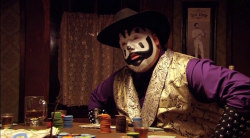
Big Money Rustlas
2010 -
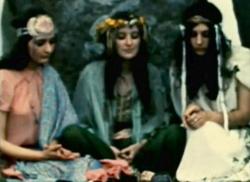
Be Glad for the Song Has No Ending
1970 -
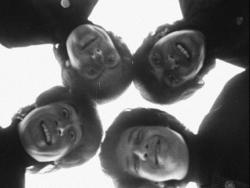
The Rutles: All You Need is Cash
1978 -
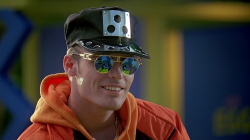
Cool As Ice
1991 -
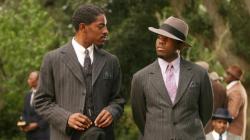
Idlewild
2006 -
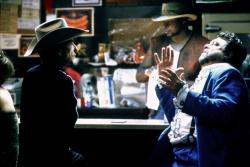
Masked and Anonymous
2002 -
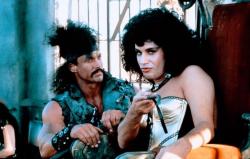
Never Too Young to Die
1986 -

Leningrad Cowboys Go America
1989 -
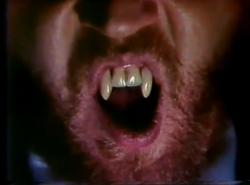
Son of Dracula
1974 -
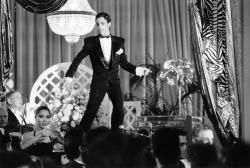
Under the Cherry Moon
1986 -
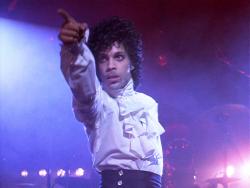
Purple Rain
1984 -
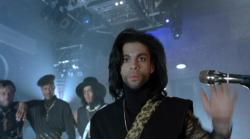
Graffiti Bridge
1990
We don’t do comments anymore, but you may contact us here or find us on Twitter or Facebook.



